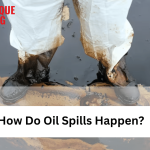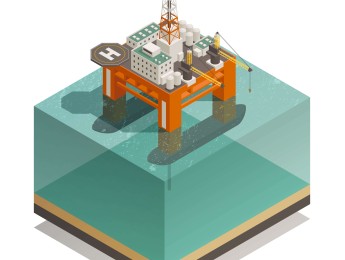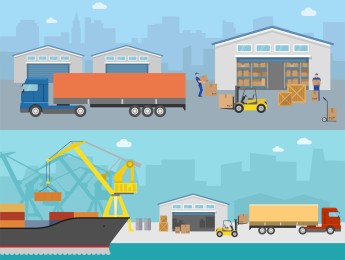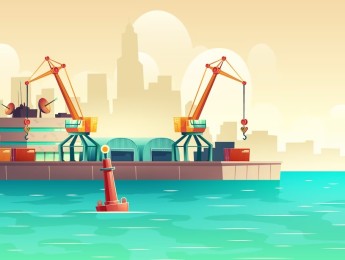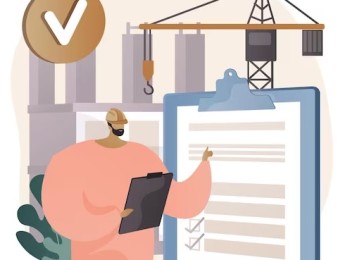This course provides in-depth knowledge of dynamic load analysis and sea fastening design principles specific to marine transport. Participants will gain the skills to analyse forces acting on cargo during sea voyages, calculate static and dynamic loads, and design robust securing systems. Emphasis is placed on practical applications, compliance with international standards, and ensuring cargo integrity and safety in challenging marine conditions.
Upon completing this course, participants will be able to:
- Understand the principles of dynamic loading in marine transportation.
- Perform load calculations for various sea conditions, including wave-induced forces.
- Conduct strength calculations to ensure the structural integrity of transported cargo.
- Design effective sea fastening systems to secure cargo during transit.
This course is designed for:
- Marine engineers and offshore operations personnel.
- Project managers involved in marine transport and logistics.
- Naval architects and structural engineers.
- Health, Safety, and Environment (HSE) officers in offshore operations.
- Professionals seeking to enhance their skills in marine transport dynamics and cargo securing systems.
The training combines theoretical instruction with hands-on practice to ensure comprehensive learning. Participants will benefit from detailed lectures explaining key concepts and principles, case studies that illustrate real-world challenges and solutions, and interactive workshops focused on load calculations and sea fastening design. Simulations using tools and software will demonstrate how to verify designs, and daily reviews along with a final assessment will evaluate learning outcomes effectively.
Day 5 of each course is reserved for a Q&A session, which may occur off-site. For 10-day courses, this also applies to day 10
Section 1: Introduction to Marine Transport Dynamics
- Overview of vessel motions: Learn the six degrees of freedom in vessel motion: roll, pitch, heave, yaw, sway, and surge. And understand how these motions impact the stability and safety of cargo.
- Wave-induced loads: Introduction to the forces generated by waves on vessels and cargo. And analysis of wave patterns, amplitudes, and their effects on vessel behaviour.
- Vessel responses: Explore how different vessel designs respond to dynamic forces. And discuss the role of hull shape, size, and centre of gravity in motion mitigation.
Section 2: Static and Dynamic Load Calculations
- Static load calculations: Learn to calculate loads acting on stationary cargo under normal conditions. And consider factors such as cargo weight, stacking arrangements, and gravitational forces.
- Dynamic load calculations: Analyse forces due to vessel acceleration, deceleration, and wave-induced motion. And include inertia effects and calculate impact loads during transport.
- Cargo-vessel interaction: Explore how cargo interacts with vessel structures under dynamic conditions. And study the effects of shifting loads on vessel balance and stability.
- Case studies: Examine real-world challenges faced during marine transport. And discuss lessons learned from past projects to avoid common pitfalls.
Section 3: Strength Calculation Methods and Sea Fastening Design
- Strength calculation methods: Calculate the structural strength required to withstand transport forces. And learn to apply strength assessment techniques for cargo and fastening systems.
- Material selection for sea fastening: Understand the properties and applications of chains, straps, welds, and other materials. And evaluate material compatibility with cargo and vessel surfaces.
- Workshop: Sea fastening requirements: Practical session to calculate sea fastening needs for a sample cargo.
Section 4: Verification, Compliance, and Assessment
- Verification of sea fastening designs: Validate designs against expected load conditions and stress factors.
- Compliance with international standards: Understand the requirements of IMO CSS (Code of Safe Practice for Cargo Stowage and Securing). And learn about additional standards from DNVGL and other marine industry bodies.
Upon successful completion of this training course, delegates will be awarded a Holistique Training Certificate of Completion. For those who attend and complete the online training course, a Holistique Training e-Certificate will be provided.
Holistique Training Certificates are accredited by the British Assessment Council (BAC) and The CPD Certification Service (CPD), and are certified under ISO 9001, ISO 21001, and ISO 29993 standards.
CPD credits for this course are granted by our Certificates and will be reflected on the Holistique Training Certificate of Completion. In accordance with the standards of The CPD Certification Service, one CPD credit is awarded per hour of course attendance. A maximum of 50 CPD credits can be claimed for any single course we currently offer.
- Course Code IND01-149
- Course Format Classroom, Online,
- Duration 5 days


